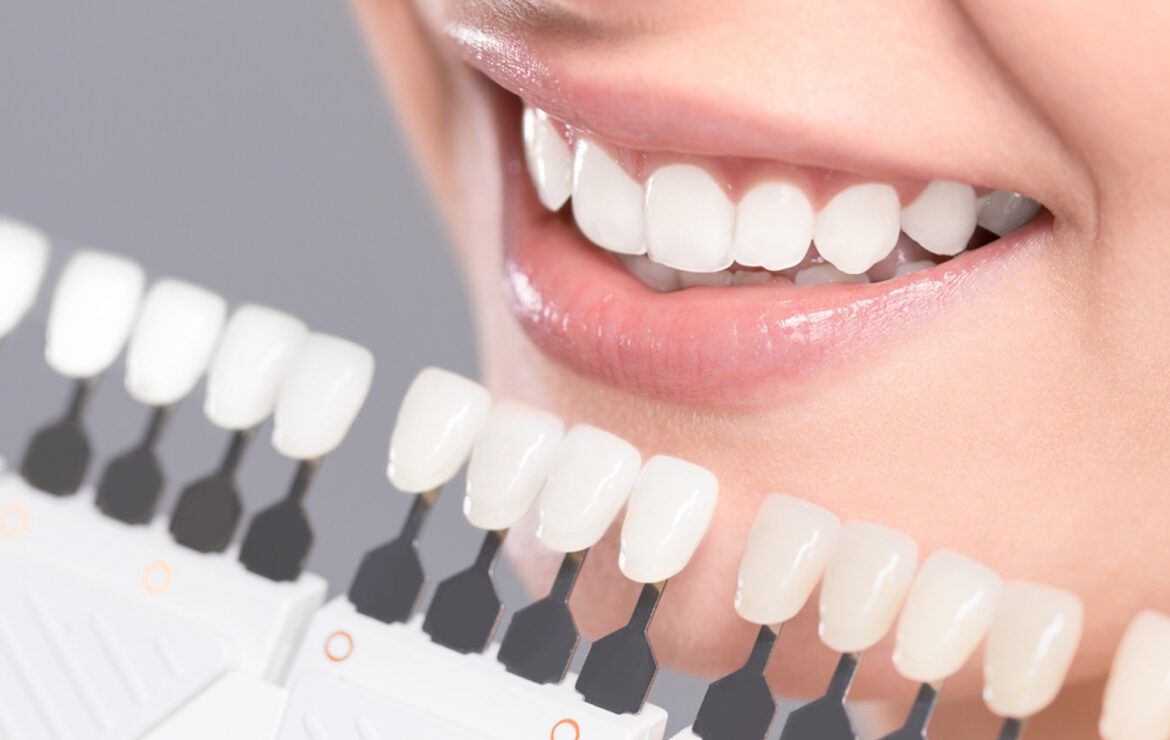
Are Porcelain Veneers Painful? Busting Myths About the Procedure
Everything You Need to Know About Porcelain Veneers: A Dazzling Smile Without the Pain
If you’re looking to enhance your smile with porcelain veneers but are worried about discomfort, it’s important to understand what the procedure involves. Porcelain veneers are a popular cosmetic solution for chipped, stained, or misaligned teeth. While it’s natural to have concerns, we’re here to debunk some myths and help you feel at ease.
Key Points About Porcelain Veneers and Pain
What Are Porcelain Veneers?
Thin, custom-made porcelain shells that cover the front of teeth to improve their appearance.Pain Level?
The procedure is minimally invasive, with local anesthesia to ensure comfort. Temporary discomfort or sensitivity can occur but is typically short-lived.Myth Busting:
Veneers aren’t extremely painful—the procedure is generally well-tolerated.
Sensitivity isn’t permanent—it usually resolves within a few days.
Minimal tooth structure is removed—only a thin layer of enamel is shaved.
The Porcelain Veneers Procedure: Does It Hurt?
The process of getting porcelain veneers typically involves a few visits to the dentist. During your initial consultation, your dentist may take X-rays and impressions to assess your teeth. A key step in preparation involves trimming a small amount of enamel from your teeth to ensure the veneers fit well.
Here’s why most people find the procedure tolerable:
Anesthesia: Local anesthesia ensures you won’t feel pain during the procedure. You may experience a slight pinch from the injection, but the area will quickly numb.
Tooth Preparation: Only a thin layer of enamel is removed, which most people describe as mild pressure or vibration, not pain.
Placement of Veneers: Bonding the veneers to your teeth is painless.
Managing Discomfort After the Procedure
After the procedure, some patients experience mild discomfort or temporary sensitivity. This is common and can be easily managed with over-the-counter pain relievers. The discomfort typically fades within a few days.
Busting Common Pain Myths:
Myth 1: Getting veneers is extremely painful.
Reality: The procedure is minimally invasive, and anesthesia ensures most patients feel little to no pain.Myth 2: Veneers always cause lasting sensitivity.
Reality: Sensitivity may occur temporarily, but it is usually short-lived. Persistent sensitivity should be addressed with your dentist.Myth 3: The entire tooth structure is removed.
Reality: Only a small amount of enamel is removed, preserving the majority of your natural tooth.
Factors That Affect Discomfort
Your level of discomfort can vary based on several factors:
Dentist’s Skill: A skilled cosmetic dentist can ensure minimal discomfort throughout the process.
Your Pain Tolerance: Everyone experiences pain differently. Some people may feel more discomfort than others.
Amount of Tooth Preparation: If significant shaping of your teeth is required, you may experience slightly more sensitivity.
Post-Veneer Recovery and Care
Recovery from porcelain veneer placement is usually quick and straightforward. Most patients report little to no pain, though mild sensitivity or increased salivation is common and should subside soon after the procedure. To care for your veneers and maintain your beautiful smile:
Good Oral Hygiene: Brush gently around the veneers to avoid gum irritation.
Soft Food Diet: Stick to soft foods for the first few days to avoid unnecessary discomfort.
Regular Dental Check-ups: Routine check-ups are essential to ensure your veneers are in good condition.
Long-Term Care and Maintenance
Porcelain veneers are a long-lasting investment in your smile. With proper care, they can last 10 to 15 years or more. To maximize their lifespan:
Use Non-Abrasive Toothpaste: Avoid abrasive products that can damage the surface of the veneers.
Avoid Hard Foods: Protect your veneers by avoiding very hard or sticky foods.
Regular Visits: Ensure your veneers stay in top shape with regular dental check-ups.
FAQs on Porcelain Veneers and Pain Management
Q1: Are porcelain veneers painful?
No, the procedure is generally pain-free due to the use of local anesthesia. Mild discomfort or sensitivity afterward is common but manageable with pain relief medications.
Q2: What’s involved in the veneer procedure?
The process includes an initial consultation, tooth enamel trimming under anesthesia, taking impressions for custom veneers, and bonding them to your teeth with minimal discomfort.
Q3: How long is the recovery period?
Most patients experience minimal discomfort post-procedure, with sensitivity subsiding within a few days.
Q4: How should I care for my porcelain veneers?
Maintain good oral hygiene, use non-abrasive toothpaste, and visit your dentist regularly for check-ups.
Q5: What are the potential side effects of getting veneers?
Temporary tooth sensitivity and mild gum soreness are common. Rarely, misalignment or looseness may require attention.
Q6: How long do porcelain veneers last?
With proper care, porcelain veneers can last 10 to 15 years or longer. Regular dental visits are essential for upkeep.
Conclusion: A Stunning Smile Without the Pain
Porcelain veneers offer an excellent solution for those looking to improve their smile. With minimal discomfort during the procedure and a straightforward recovery, you can enjoy a long-lasting, beautiful smile. If you’re considering veneers, schedule a consultation with an experienced cosmetic dentist who can guide you through the process with ease.
At AA Dental Vancouver, we are committed to your comfort and satisfaction, helping you achieve the smile of your dreams. With our personalized care and financing options, we’ll make your journey to a stunning smile both easy and affordable.

